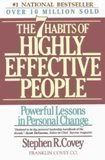Budgets and personal finances are not most people’s favorite topics, and certainly not one of mine. Most bank executives even have problems in this area, and if you’re an entrepreneur then more than likely you probably do too! It's not that you don't care or anything. It's just that you’re probably concentrating so much on your business that your personal checkbook takes a back seat. Then one day you are met with the startling fact that you’re not saving enough for lean times and you panic. Then what?
Well, just apply your professional talents to the situation and become your own personal CFO! By focusing your 'CFO' eyes on the situation, it somehow tempers the pain of dealing with your own money. To get started, here are 5 rules for treating your personal finances like a business:
1. Be Your Own Board Of Directors.
To make good decisions, you must know what you’re trying to achieve. In business, Board of Directors write mission statements to keep the company on track with goals. At home, it’s up to you to define your mission and make sure you’re fulfilling it by writing down your goals. Not just your financial goals either, but your “life” goals as well.
2. Know Your Operating Costs.
Do you know what you spend every month on average? Businesses do because they base their budgets on historic spending patterns. Most people, however, don’t know what it costs to keep their lives running. You can make out detailed budgets, but find out at the end of the month that you haven’t stuck to it. So instead of doing a budget that dictates how much to spend, do a “cash flow statement” that records how much you actually spend each month broken into several categories.
3. Know Your Net Worth.
Companies measure the progress towards their goals through balance sheets which list their assets and liabilities. Your net worth is your balance sheet where you list everything that you own. That means your checking and savings accounts, investments, car, house, etc. minus everything you owe. Track your net worth quarterly to make sure you’re moving toward your personal goals. Without this step, you might not see the impact of your money decisions until it’s too late.
4. Forecast Money Decisions Results.
When a business makes important decisions, they use a process called “scenario planning”. They look at the possible outcomes of one choice compare to another. You can use the same process to make smart money decisions. For any choice, pick two options, and then look at what each answer would do to your cash flow and net worth. Remember, there are no “good” or “bad” choices – only choices that put you closer or farther from your goals.
5. Track Progress By Annual Reports.Just as companies assess their progress in their annual reports, you need to review your list of priorities every year.
- Have you accomplished any goals?
- Have your spending patterns changed?
- Did you spend less than you earned?
- Did you save as much as you planned?
You need to treat your money like you treat your business. Give it the time it deserves, because in the end the time you spend is really an investment in yourself and your dreams.
To Your Health, Wealth & Happiness!
Pam Lawhorne
Pam Lawhorne is a serial entrepreneur, small business expert and creative marketing consultant, who provides advice, guidance, and encouragement to aspiring CEO's around the nation in her popular seminars and publications. She is the Chief Empowerment Officer of Empower U, Incorporated, a training and consulting firm that specializes in interactive workshops, seminars and coaching programs.
Ms. Lawhorne is the author of “From Minimum Wage To Getting Paid! - How To Become A Successful Entrepreneur With No Money, Education Or Experience!" and she is also a syndicated columnist who writes articles on empowerment, entrepreneurship, personal development, creative marketing and real estate investing. Her articles appear nationally in newspapers, magazines, and on numerous business websites and on-line publications. For additional information please visit her website: www.PamLawhorne.com.
The above article is copyright 2003-2008 by Pam Lawhorne. Permission to repost is freely granted so long as the text is not altered in any way, and the copyright and links are included.
Monday, January 14, 2008
Subscribe to:
Post Comments (Atom)




No comments:
Post a Comment